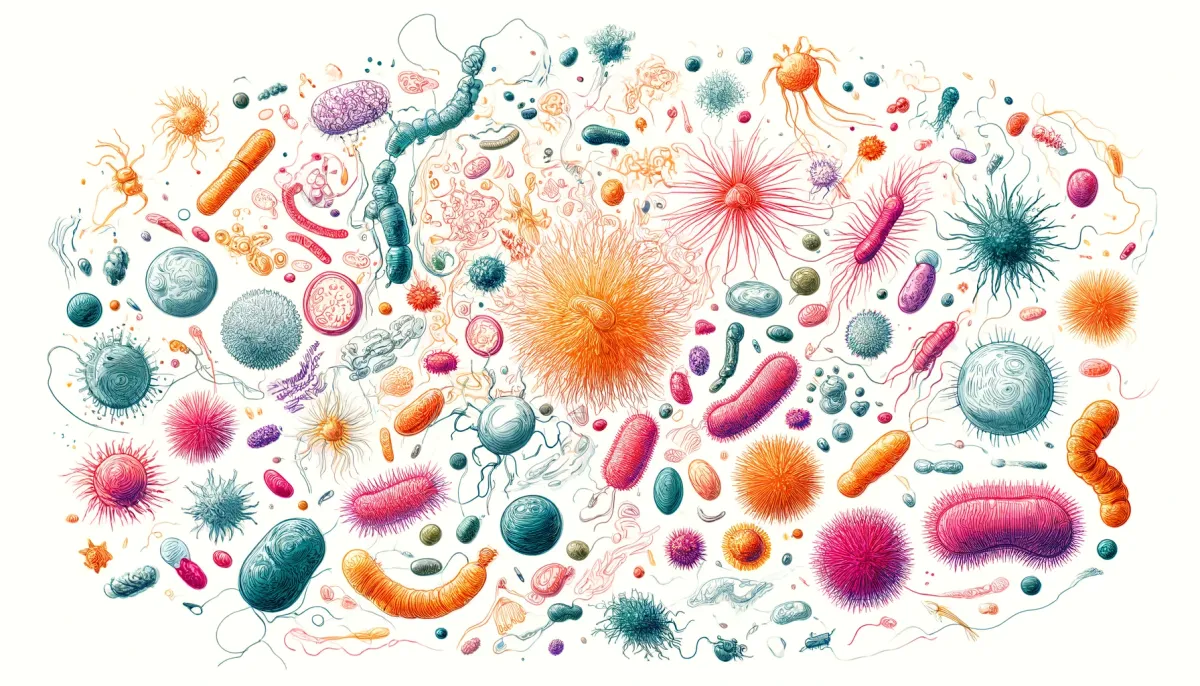The Many Uses of Direct-Fed Microbials

The high-points:
- The microbes in the rumen have a large impact on the health and productivity of the ruminant.
- Increased levels of both lactic acid-producing and utilizing bacteria can decrease the risk of acidosis and improve the animal growth rate.
- Other research has shown that supplemental microbes can decrease the shedding of E. coli O157:H7 in feedlot cattle and increase carcass quality.
What you need to know: The potential impact of improving ruminal health has led researchers to supplement various microbes to cattle and measure the effects on things like milk production and animal growth rate. A recent review discusses the benefits and use-cases of feeding additional microbes to ruminants in a supplement form, called Direct-Fed Microbials or Probiotics.
A major portion of the microbes in the rumen are bacteria and are categorized as either lactic acid-producing (LAB) or lactic acid utilizing (LUB). When at the proper ratio, these two groups of bacteria harmoniously produce and use lactic acid. This harmony occurs because as LAB numbers increase in prevalence, they make more lactic acid, which is the food source of LUB. And the more food available, the more LUB bacteria that can survive in the rumen, increasing their population, which also means more products from the bacteria, called VFA. These VFA are used, in turn, by the host as an energy source, leading to more animal growth. Because of this, many direct-fed microbes are in the form of lactic acid-producing bacteria.
Even though non-bacterial microbes of the rumen make up a smaller portion than bacteria, they can still significantly affect ruminant digestion and health. For example, fungal supplements (see past R2R edition) can increase feed intakes and VFA production. Fungus in the rumen can increase the numbers of beneficial bacteria by providing them with acids and growth factors, and the good bacteria can then out-compete harmful bacteria populations.
Other research showed that supplementing cattle with a bacteria called Lactobacillus acidophilus can decrease the shedding of E. coli O157:H7 in feedlot cattle. This could be useful in the meatpacking industry to prevent foodborne illnesses. Additionally, other papers have shown increases in carcass quality, which benefits a good portion of the beef supply chain. Finally, some data suggest that these products could expedite the development of pre-weaning calves rumens by introducing beneficial microbes as the rumen microbiome begins to form.
Important to note:
- The stability of a product is vital, as microbes need to be viable to affect the rumen microbiome – product viability can be affected while in the supplement and during digestion.
- Interactions of supplements with feed ingredients of the ration, microbes that are already present in the rumen, and the physiology of the animal are not fully understood.
Industry application: Direct-fed microbes have been shown to improve the health and performance of feedlot animals and the rumen development of calves during weaning. These products have a wide array of applications and could improve the profitability of the operations that adopt their usage.
Read more about it:
